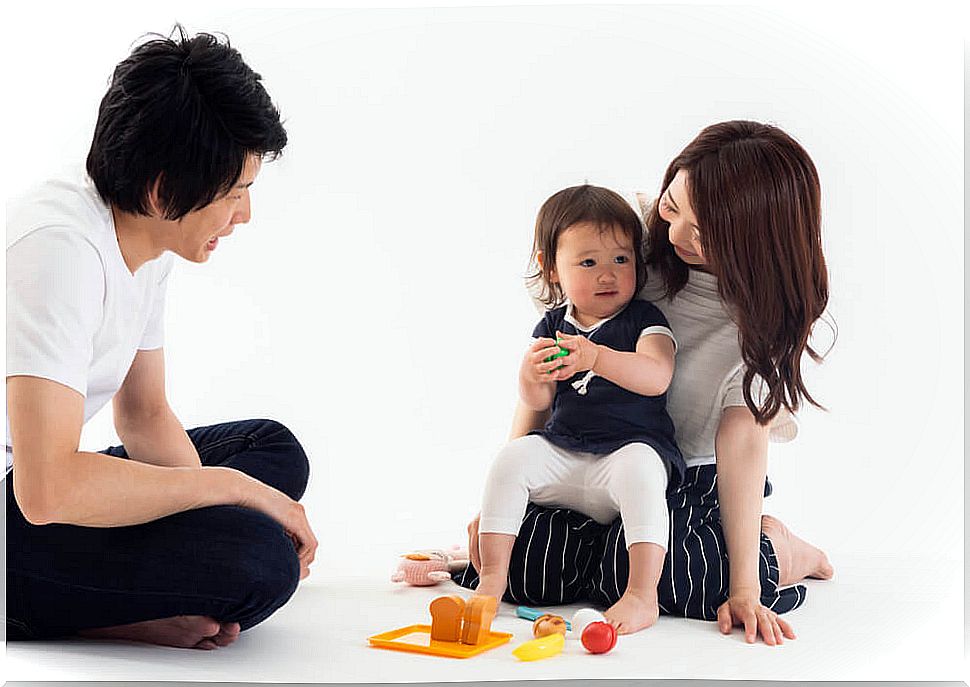With Authority You Don’t Educate, You Train

Educating a child is a complicated task. It is normal that errors are commented and that, sometimes, the best way to proceed is not clear. However, we must understand that if our goal is to educate emotionally healthy and autonomous children, authority is not the best option.
Often times, we are more focused on the result than on the process. We want perfect, obedient, respectful, orderly and studious children. But instilling values requires time, patience, dialogue and a lot of love.
If we focus so much on the result, we will forget that what is really important is to plant the seeds from which a wonderful and happy human being will be born. Seeds that need time to germinate.
With authority he trains, but he does not educate
It is easy to resort to authority when we want our children to do something because it is effective in the short term. Indeed, if we threaten a child, he will probably end up giving in to our orders. If we offer you an award, we will get you to act the way we want. However, what is the learning?

No punishments
Imagine that your child loves chocolate and wants to eat a whole tablet. You tell him that if he does, you will punish him without watching television. Or you impose your will by hiding the chocolate in a high place without giving more explanations than a “because I said so”.
What we achieve with this type of behavior is that, the moment the child reaches for the chocolate and knows that you cannot see it, he will eat it all again. Well, he simply moves to avoid punishment, but he has not learned anything. It would be much more beneficial to take the time to explain to the little one that eating too much can harm their health and, therefore, it is better to take only a small portion.
Obviously, this option takes more time; the child will not immediately accept, question and insist. However, if we repeat the arguments with love and firmness, the message will end up getting through.
It is true, we will have taken longer to reach the goal, but we will not only have managed to get him to give up the chocolate, we will also have taught him about health and self-care.
Likewise, it is important to remember that punishments, threats and impositions damage the bond between parents and children. The child may develop resentment, rage or anger against the parents, because they do not feel heard or respected by them, only intimidated. If we opt for dialogue, trust and emotional ties will be strengthened.
No prizes
Although awards may seem like a good educational alternative, they also have drawbacks. And, as in the case of punishments, acting to achieve a reward does not generate significant learning either.
Several studies have shown that intrinsic motivation is much more powerful than extrinsic motivation when it comes to generating behaviors. In other words, it is easier for children to act based on solid arguments and values that they have internalized, than in search of material rewards that are provided to them from the outside.

For younger children, parental attention is the greatest reinforcement there is. Therefore, smiles, praise or words of encouragement are the best alternative. They want to please their parents; making them proud gives them greater and healthier motivation than any toy or bauble.
Still, it is important to always provide strong and convincing arguments when we ask them to do something. Formulas such as “if you make your bed every day, I’ll buy you a gift on Sunday” are not the most appropriate. Well, implicitly, we convey to them that making the bed is an obligation, something negative that they must endure to obtain the reward.
Actually, it is preferable to invite them to make the bed as an act of responsibility and care of their spaces. In this way, their autonomy is reinforced, they feel more capable, self-confident and they develop their independence. Making the bed will then be a daily act that will have a purpose by itself, without the need for something external.
Authority is a sprint , but educating is a long-distance race
In sum, rewards and punishments can have quick effects, but they are not lasting or healthy. We should not seek that children obey, but that they learn, that they acquire the tools and values that will serve them for life. Educating is a long-distance race; with authority it is not educated.










